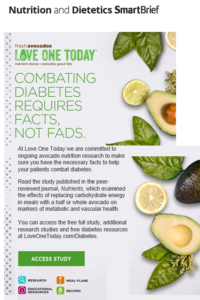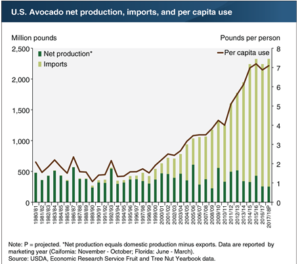Headline versus study: Avocados
I so appreciate the Obesity and Energetics newsletter that comes out every week, and particularly its occasional listing of “Headlines versus Study.” This one is from a couple of months ago, but I am just getting to it.
- Headline: The Largest Study Ever on Avocados Has Some Good News for Your High Cholesterol: “Eating one avocado per day could lower LDL cholesterol and improve overall diet quality, according to a new study published in the Journal of the American Heart Association.”
- Press Release: Daily Avocados Improve Diet Quality, Help Lower Cholesterol Levels: “Eating one avocado a day for six months was found to have no effect on belly fat, liver fat or waist circumference in people with overweight or obesity, according to a new study. However, it did lead to a slight decrease in unhealthy cholesterol levels. In the randomized trial, the team — including Penn State researchers — also found that participants who ate avocados had better quality diets during the study period.”
- Study Results: The primary outcome, change in visceral adipose tissue volume during the intervention period, was not significantly different between the Avocado Supplemented and Habitual Diet Groups…No significant group differences were observed for the secondary outcomes…Changes in the other additional and post hoc measures (body weight, body mass index, insulin, very low‐density lipoprotein concentrations, and total cholesterol:high‐density lipoprotein cholesterol ratio) were similar between the 2 groups.
- Conclusions: Addition of 1 avocado per day to the habitual diet for 6 months in free‐living individuals with elevated waist circumference did not reduce visceral adipose tissue volume and had minimal effect on risk factors associated with cardiometabolic disorders.
This is a classic example of putting a favorable spin on no-effect results. The study was NOT funded by the avocado industry and I cannot find a Haas Avocado Board comment on it.
The authors were quite clear about “no effect.” The press release is another matter.
************
Coming soon! My memoir, October 4.
For 30% off, go to www.ucpress.edu/9780520384156. Use code 21W2240 at checkout.





